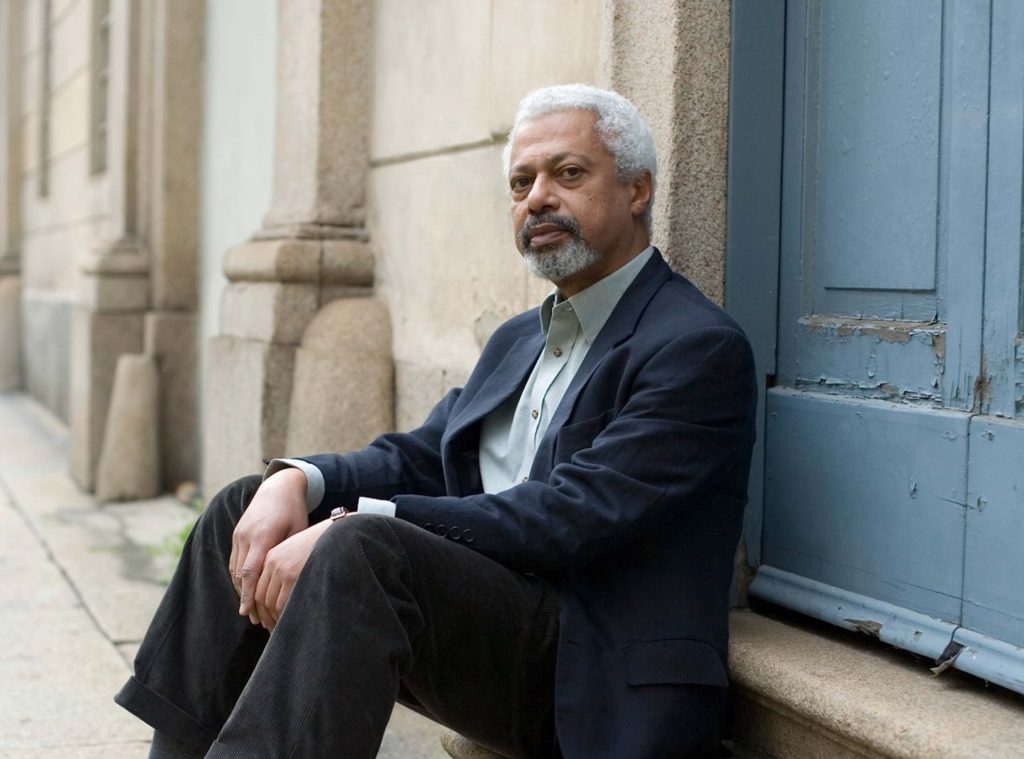Zanzibar-born novelist and university professor Abdulrazak Gurnah writes historical fiction that grapples with the effects of colonialism, war, and exile. Gurnah received the 2021 Nobel Prize in Literature in early October.
Gurnah has written 10 novels as well as several essays and short stories. The novelist was editor of the Cambridge University Press book A Companion to Salman Rushdie. He has also been a contributing editor to the British literary magazine Wasafiri since 1987.
Gurnah is a fellow of the United Kingdom’s Royal Society of Literature.
Abdulrazak Gurnah: the award-winning novelist
Gurnah taught at the University of Kent in the United Kingdom as Professor of English and Postcolonial Literatures. He supervised students working with the writings of Salman Rushdie, Jamaica Kincaid, V.S. Naipaul, and Joseph Conrad. Gurnah retired in 2017, taking on the title of Emeritus Professor.
In 1987 Gurnah published his first novel, Memory of Departure. The work grew out of reflective diary entries and short stories Gurnah wrote to process life as a refugee.
“Being a stranger, living through the difficulties of finding my way, having kind of abandoned home, things like that influenced me,” Gurnah explained. “I just found myself writing things down one day, as people usually do, and found new pages that built up on these ideas… At some point it started to look like a novel.”
In 1994, Gurnah published his fourth novel Paradise. The book is set in East Africa during World War I. A father sells his son to an Arab merchant to pay off debt. Paradise was nominated for the Booker Prize in Fiction and the Costa Book Awards’ Whitbread Prize that same year.
Gurnah’s sixth novel By the Sea (2001) was longlisted for the 2002 Booker Prize and Shortlisted for the Los Angeles Times Book Prize. The novel follows the stories of two men who attempt to enter the UK by varying means.
Desertion (2005), set in twentieth century Zanzibar, was shortlisted for a Commonwealth Writers Prize in 2006.
“The thing that motivated the whole experience of writing for me was this idea of losing your place in the world,” Gurnah said.
The Nobel Prize winner published his latest novel, Afterlives, in 2020. Afterlives follows four characters through the Maji Maji rebellion against the Germain occupation of East Africa.
Teenage Abdulrazak Gurnah fled to the UK
Gurnah was born in Zanzibar, an island chain off the coast of Tanzania, in 1948. The island was at that time part of the Zanzibar Sultanate. His first language is Swahili.
Being of Arab descent, Gurnah fled the Zanzibar Revolution in which Arabs were persecuted. The novelist was a teenager when he moved to the United Kingdom in 1968 as a refugee. He is now a British citizen. Gurnah was not permitted to return to Zanzibar until 1984, to visit his dying father.
After arriving in England, Gurnah entered Canterbury Christ Church University where he earned his B.A. Gurnah later earned his master’s and PhD from the University of Kent, where he would become professor. He then wrote the thesis Criteria in the Criticism of West African Fiction in 1982.
Gurnah wins the Nobel Prize for literature
On October 7, 2021 Gurnah received the Nobel Prize in Literature “for his uncompromising and compassionate penetration of the effects of colonialism and the fate of the refugee in the gulf between cultures and continents.”
“I thought it was a prank, I really did,” Gurnah told Nobel Prize outreach about receiving the news. “I was just thinking ‘I wonder who’ll get it.’”
Gurnah is the first Black writer to receive the prize in literature since 1993. He is also the first African to receive the prize since 1986.
“I suppose it’s both the, the pleasure of making things, crafting, getting it right, but it’s also the pleasure of getting something across…of making a case, of persuading, and all of those kind of things,” he said about his writing.
Learn more about Gurnah’s books with the New York Times or peruse titles on Amazon.



